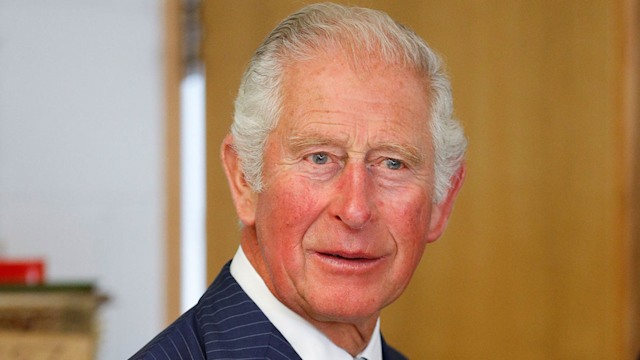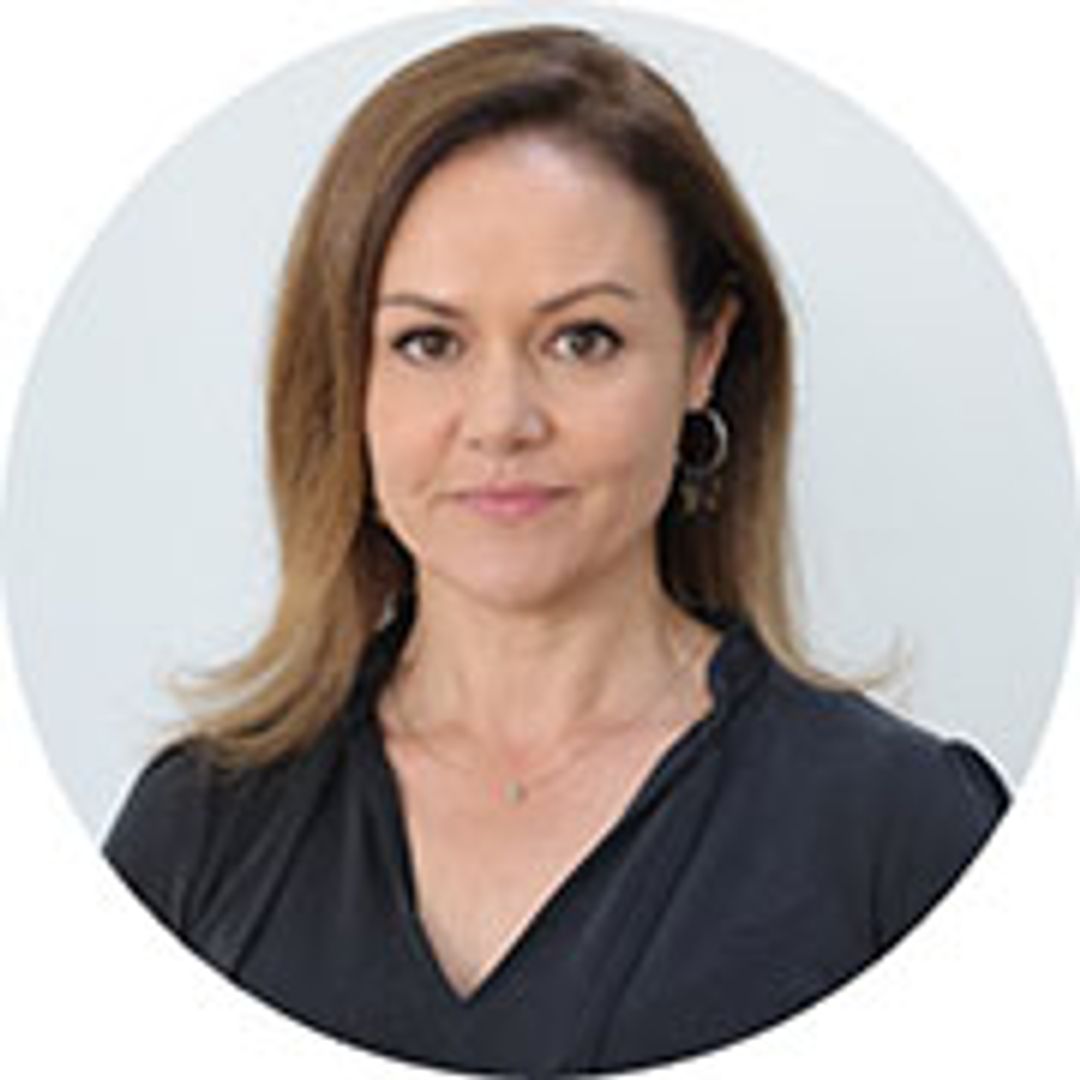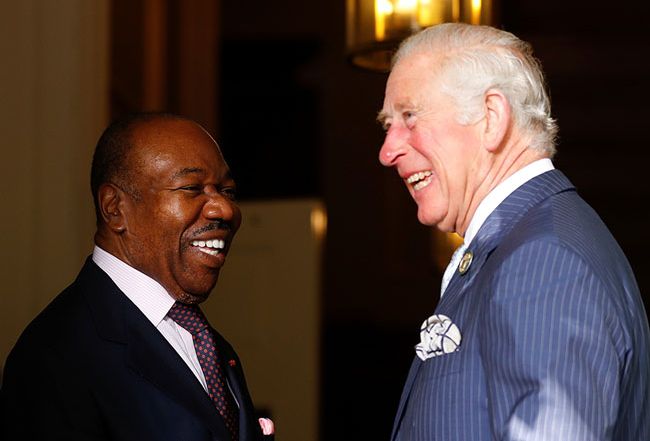The Prince of Wales and the President of Gabon today heard how work to support biodiversity by British scientists could futureproof the multi-billion dollar coffee industry.
Prince Charles and President Ali Bongo Ondimba met botanists at the Royal Botanic Gardens Kew who have helped to rediscover a coffee species that is climate resilient, potentially protecting the livelihoods of 100 million coffee farmers worldwide as well as protecting forestry.
After hearing how other plant species, such as bananas are under threat from disease and climate change, the heir to the throne called for a greater focus on "critical" biodiversity.
READ: Prince Charles' exciting new TV project revealed
WATCH: Prince Charles visits the Royal Botanic Gardens, Kew
The Prince said: "It's a terrible problem, isn't it, that we've made ourselves so vulnerable over the last 60, 70 years, haven't we, by reducing everything to just two to three species, or even two like the bananas, so we're much more vulnerable to diseases.
"And this is why biodiversity, regeneration is so critical, isn't it?
"And, it seems to me, the combination or the reintroduction I think of agro-forestry systems would presumably benefit hugely coffee and banana rather than just mono-cultural plantations."
A month ahead of COP26, the Prince and the President were joined by CEOs from Charles's Sustainable Markets Initiative for a behind-the-scenes look at some of the Kew's crucial work on biodiversity and how it can relate to business.
MORE: Princess Anne praised as 'best royal' for new role
MORE: Prince Charles recalls fun childhood memories of 'marvellous' Prince Philip
Charles greets the President of Gabon Ali Bongo Ondimba
In the Herbarium – one of the world’s biggest collections of plant specimens - they were shown a species of cucumber brought back from the Galapagos Islands by Charles Darwin, a type of legume only found in Gabon, a rhododendron from the mountains of Papua New Guinea and beans from the Zanzibar coffee plant, which was Queen Victoria's favourite coffee.
Dr Aaron Davis, head of crops and global change, told the visitors how earlier this year, staff at the Herbarium helped to rediscover the coffee species Coffea Stenophylla, which grows in Sierra Leone.
An in-depth study found the plant can tolerate much hotter temperatures than and tastes superior to the Arabica variety, the world’s most popular coffee. It grows well in shade, so is also good for forest preservation and carbon capture. The discovery could protect the livelihoods of 100 million coffee farmers worldwide and others working in supply and production and retail.
He said: "Climate change is the game changer and it is the number one issue for longer term sustainability.
"Globally there are 100 million people involved in coffee farming alone. If you look across the sector there are many more millions of people and it’s a multi-billion dollar sector."
Explaining that a 2019 study of 130 coffee species found that 60 per cent were under threat of extinction and if they had waited another decade, the Coffea Stenophylla may no longer have existed, he added: "This has really inspired the Sierra Leonean government to preserve those plants because they see the instrinsic value. It's not a moral issue, it's about our survival."
MORE: Countess of Wessex, Princess Anne and the Queen's cousins visit Chelsea Flower Show - best photos
Charles surprised a couple enjoying a picnic at the gardens
The Herbarium, which has six wings containing more than seven million plant specimens, plans to digitize its vast collection of to create a globally accessible resource.
The royal party then walked through Kew's Grass Gardens, to the surprise of a couple picnicking on a secluded bench.
The space is planted with 550 species of some of the world's most economically important plants, used to make cereals, drinks, buildings and increasingly as sources of renewable energy.
The tour continued in the Jodrell Laboratory, where Kew's scientists extract the DNA of plants as part of their studies.
Professor Monique Simmons showed the Prince and his guests how the lab is working with Proctor & Gamble to develop its next range of hair products. She showed them a line up of products from the company's Herbal Essences brand which bear Kew's roundel as a mark of authenticity after being subjected to rigorous testing to check the natural ingredients they contain are genuine and sustainable.
She explained how because of its antibacterial properties demand for lavender had risen during the pandemic, so that some manufacturers were instead using another, less potent species. And she told them how many natural ingredients were adulterated for use in cosmetics or food products because of issues such as climate change, supply and cost.
She said: "For example, there is more ginseng used in products than there is produced worldwide. In some areas of the world, ginseng is 100 per cent adulterated."
MORE: Kate Middleton, Prince William and kids enjoy pub meal in Norfolk – details
Charles invited CEOs from his Sustainable Markets Initiative
Traditional ginseng, which takes around six years to grow, is often replaced with Poor Man's Ginseng, which takes just six months to harvest.
"But they don’t have the same properties so they don't give the right effect," explained Professor Simmons.
The Jodrell Laboratory analyses nearly 2,000 product samples a year, including furniture. Scientists are currently working with Ikea, performing DNA analysis of their rattan furniture collections to ensure it is sustainably sourced.
As the group approached senior researcher Dr Bill Baker, who is conducting the work, Kew's Chair of Trustees Dame Amelia Fawcett joked: "The Prince is very interested in Rattan, so don't screw it up!"
Dr Baker showed them rattan items including a carpet beater and an Indian polo mallet, as well as a Buskbo rattan chair from Ikea. Using DNA sequencing methods had, he said, revealed "multiple specimens in each chair".
Charles speaking with an expert from the Jodrell Laboratory
Professor Alexandre Antonelli, Kew's director of science, said: "Ikea had a problem, we had a solution. What we needed was to develop a reference database so we can match them. Large companies have a large impact on the environment and we're really keen to help them develop sustainable solutions that will give them both economic development, but also protect the biodiversity we have on the planet."
He added: "We are living in a time of crisis… but actually, there are solutions that will be good for nature, people, the planet, and climate."
President Ondimba was visiting with Gabon's Minister for the Environment, Professor Lee White. The African nation is a leader in biodiversity and forest preservation and is working to preserve the Congo Basin rainforest.
With nearly 90 per cent of the country covered by forest, it has old growth trees which are critical for the world as they hold more carbon than similar forests in the Amazon.
It is also home to around 60 per cent of Africa's surviving forest elephants and it has become the first country to receive payment for reducing carbon emissions by protecting its rainforest.
Gabon received $150million from Norway in a deal brokered through the Central African Forest Initiative.
Make sure you never miss a ROYAL story! Sign up to our newsletter to get all of our celebrity, royal and lifestyle news delivered directly to your inbox.


